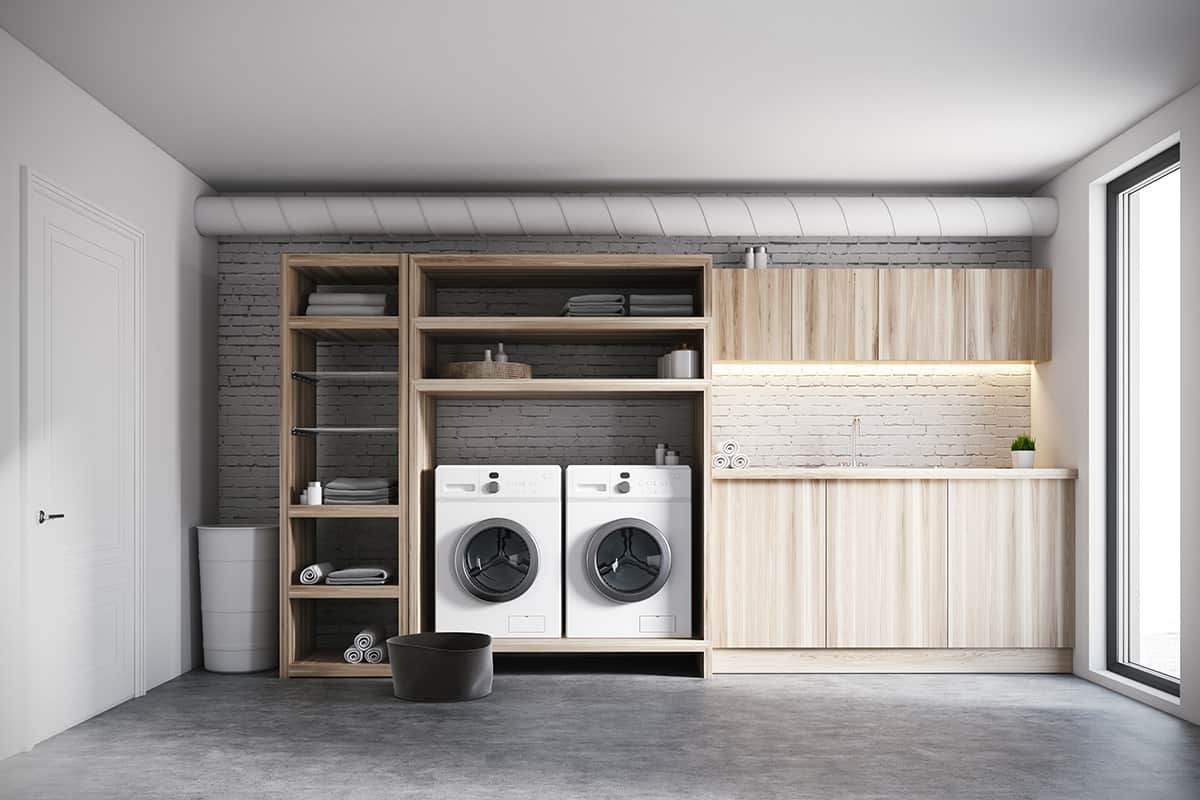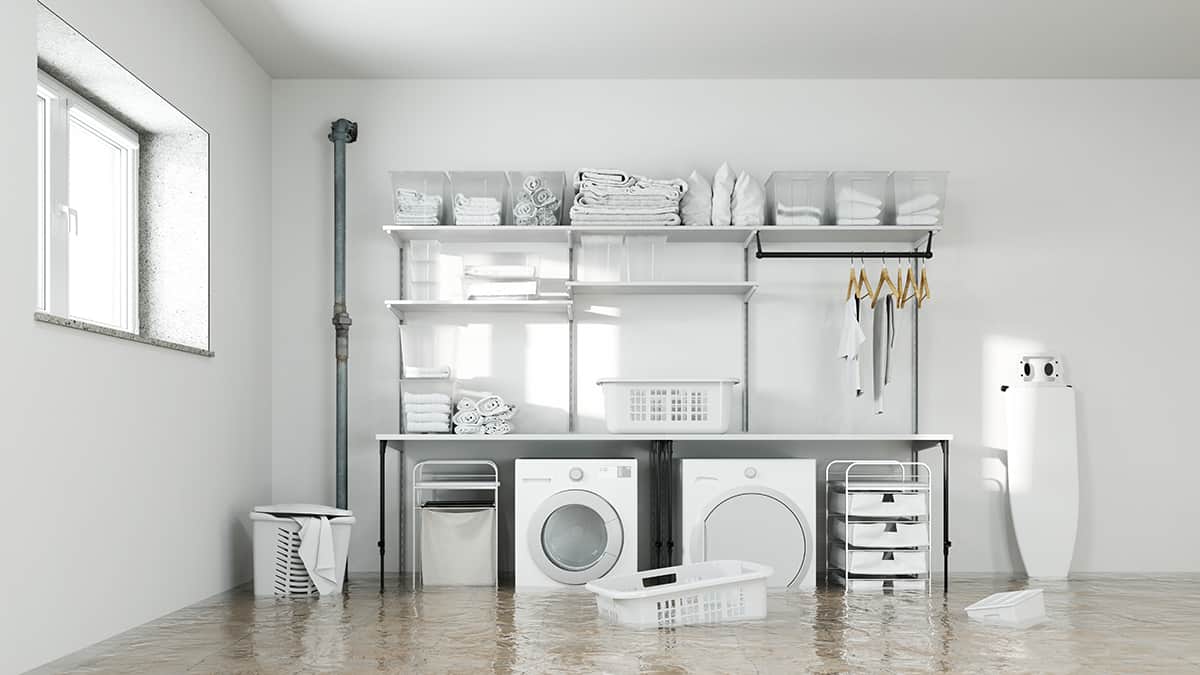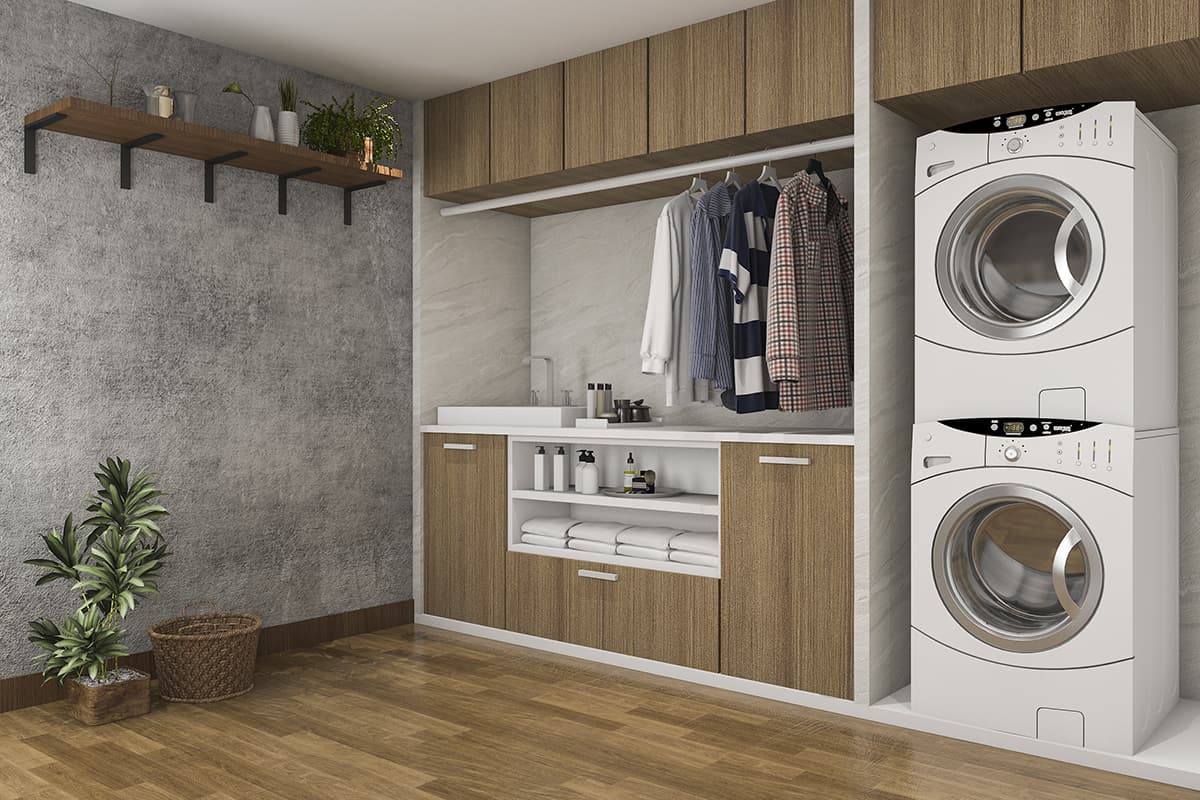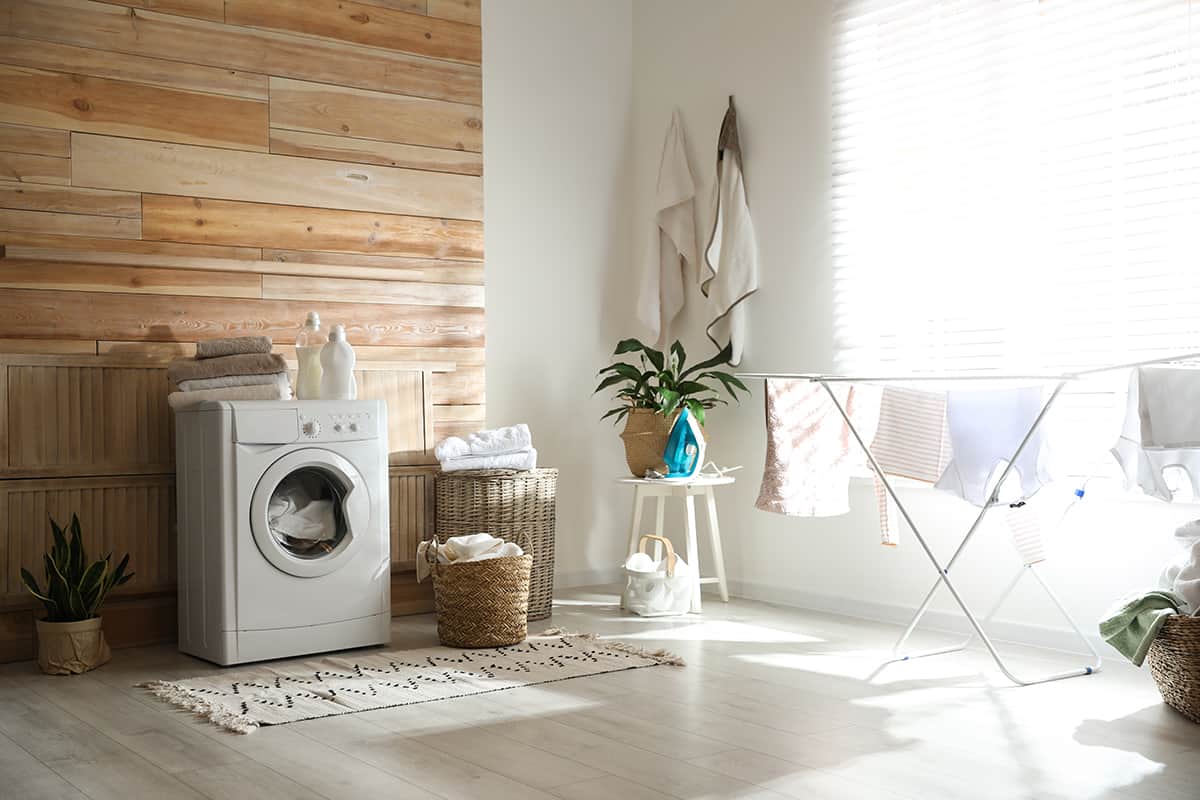A laundry room is typically one of the smallest rooms in the home, and it is commonly the least thought about room; however, the functions it serves are some of the most important.
The laundry room houses the washing machine and dryer, and it can also have the added benefit of a sink and faucet for pre-rinsing laundry. Some laundry rooms might also be equipped with cabinets for storing cleaning supplies.
If your laundry room doesn’t have a door, then you might be wondering if it is worth the effort to install one since this is a room that people don’t typically spend much time in or much money improving.
Here we look at some of the reasons why installing a door in a laundry room could be beneficial and reasons why you might decide against it.
Should the Laundry Room Have a Door?
Yes
There are many reasons why some people feel a laundry room absolutely must have a door. One of the main reasons is that the door acts as a sound barrier. Laundry rooms can be very noisy spaces when a washing machine or dryer is running, and this is especially the case if your appliances are a little dated since they will make even more noise than usual.
Although a door in the laundry room won’t completely block out the noise, it will make it significantly quieter for those on the other side of the door, to a point where it will be bearable.
If you have a dining room or living room in close proximity to your laundry room, then the lack of a door could mean you can only put your laundry appliances on at specific times. For example, you will want to avoid putting them on when you are sitting down for a meal in the dining room or when you are relaxing in the living room.
Some people find the noise of a laundry room so disruptive that they cannot even hear the TV over the sounds of the appliances. The simple addition of a door in the laundry room will dampen the noise quite considerably so that you can use the appliances without worrying that the noise is going to cause problems for anyone living in the house.
Another reason why a laundry room door might be considered essential is that it will create a physical barrier to block any mess from view. A laundry room is not usually an aesthetically appealing space, and since most people won’t spend a lot of time in their laundry room, it often doesn’t get decorated or styled in a particular way.
Instead, it becomes like a walk-in cleaning closet, where bottles of detergent and other cleaning supplies fill the countertop space, and piles of laundry are stacked. Some people find that their laundry room becomes a dumping ground for a variety of items, such as the vacuum cleaner, the ironing board, coats and shoes, sports equipment, and pet accessories.
If your laundry room is not attractive to look at, then you are going to want a door on it. Having a door that you can close and shut out all of the mess is going to make your house feel much less cluttered and calmer to be in.
No
For some people, a laundry room door might not be considered essential. If your laundry room is tucked away at the back of the house, then it might be that the noises that come from a laundry room aren’t going to bother you.
If it is far enough away from any of the rooms that you relax in, or enjoy quiet time in, then using the door as a sound barrier isn’t going to make much difference to you. This could also be the case if you have ultra-modern appliances that have been specifically designed to produce very little noise.
Another reason why you might not be interested in using the door as a sound barrier is if you have a laundry routine of putting the washing machine on just as you leave the house to go to work; in that case, you aren’t typically home when the appliances are on, and therefore the noise isn’t going to bother you.
A laundry room door also isn’t going to be considered an issue if your laundry room is extremely tidy and well kept. If you have a well-organized laundry space that you are proud of and don’t mind looking at as you walk past it, then having the ability to shut a door and hide the room from view isn’t going to be a benefit to you.
This could also be the case if your laundry room is positioned in a part of the home, which means you very rarely need to walk past it and see inside, for example, at the end of a hallway at the back of the house.
Do Laundry Room Doors Allow Good Airflow?
One reason you might decide not to have a door in the laundry room is to ensure good airflow. A laundry room can be quite a humid space with high levels of moisture in the air because of the types of appliances used.
If you air-dry your laundry in the laundry room, then this will also increase the moisture levels. Excess moisture in the air needs to be allowed to escape; otherwise, you can get issues with mold and mildew, or it can cause paint, flooring, and surfaces to degrade and need replacing.
One way to do this is to avoid having a door in the laundry room since this will allow for good air circulation so that any moisture is not trapped in the small space. However, if you are worried about airflow and ventilation, there are ways you can address this while still having a door in your laundry room.
One popular solution is to use a louver door, which has angled slats in it to create ventilation while still maintaining privacy and blocking the laundry room from view. This is a good idea if you want to ensure good airflow but aren’t concerned about using the door as a sound barrier.
The many gaps in the slats that are needed for ventilation will also let sound pass through easily, so a louver door isn’t the best solution if you are frustrated by your noisy laundry room. Instead, to create ventilation while blocking noise, use a solid heavy door as a sound barrier and install a window or an exhaust fan in your laundry room.
If your laundry room already has a window, then you simply need to ensure it is left in an open position when your appliances are turned on, and the moist air can escape the room via the window.
If it doesn’t have a window, you could install one, but installing an exhaust fan would be less expensive and easier. A laundry room exhaust fan operates just like a bathroom fan, drawing air from the room into it and directing it outside of the home. These fans require electrical wiring and should be installed by a certified electrician.



